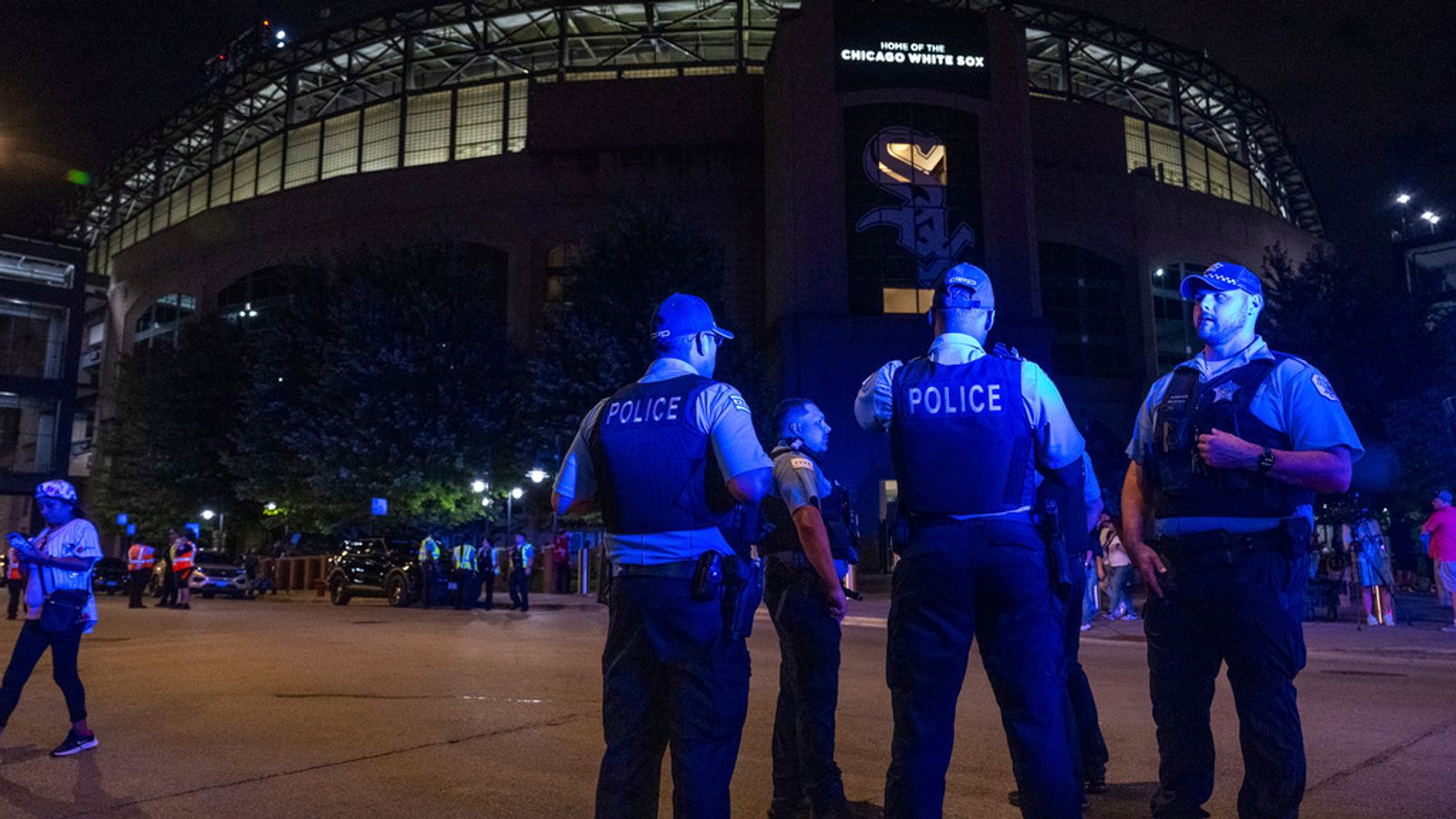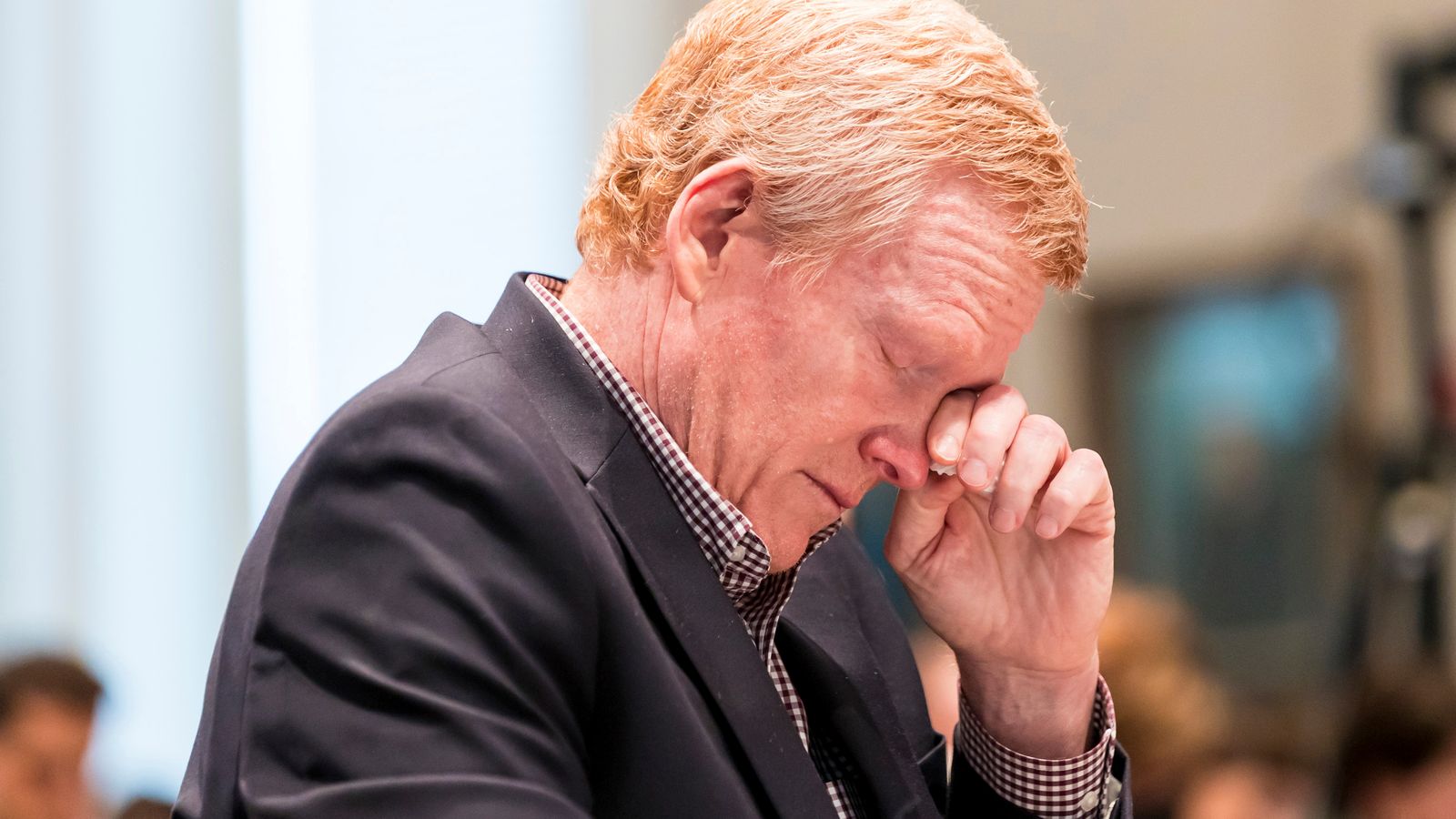Protests are continuing in cities and towns across America after the Supreme Court stripped away constitutional protection for those seeking abortions.
The court overturned the landmark ruling of Roe v Wade, a move that is likely to lead to bans on abortions in roughly half of states.
Pregnant women considering abortions were already dealing with a near-complete ban in Oklahoma and a ban after roughly six weeks in Texas.
Clinics in at least eight other states – Alabama, Arizona, Arkansas, Kentucky, Missouri, South Dakota, Wisconsin, and West Virginia – have stopped performing abortions following the decision.
In Alabama where all three clinics in the state have halted services, Governor Kay Ivey praised the Supreme Court’s move.
“I could not be more proud as a governor, a Christian and a woman to see this misguided and detrimental decision overturned,” she said. “Alabama will continue standing up for our unborn babies, our mothers and our families.”
Utah‘s law, which went into effect after Roe v Wade was overturned, makes abortions illegal except in cases of rape or incest, or when the mother would face serious risk to her life or health.
A law in Ohio which bans most abortions at the first detectable foetal heartbeat, also went into effect after the Supreme Court’s decision.
In Cedar Rapids, Iowa, a protest against the court’s decision turned violent after the driver of a pick-up truck reportedly tried to run over demonstrators.
The Democratic governors of California, Washington, and Oregon vowed to protect reproductive rights and to help women who travel to their states seeking abortions.
In Massachusetts, Republican governor Charlie Baker signed an executive order intended to protect access to reproductive health.
The order bans state agencies from helping another state’s investigation into a person or business for receiving or delivering reproductive health services that are legal in Massachusetts.
It also protects providers who deliver reproductive health care services.
But while protests against the Supreme Court’s move continue, there are also fears that the court and its conservative majority will not stop at abortion.
Justice Clarence Thomas, one of the conservatives on the court, has urged his colleagues to overturn other high court rulings protecting same-sex marriage, gay sex, and the use of contraception.
“In future cases, we should reconsider all of this court’s substantive due process precedents, including Griswold, Lawrence, and Obergefell,” Judge Thomas wrote in his concurring opinion to the ruling on Roe.
Read more:
Rape survivor considered taking her own life after getting pregnant
President Biden warns ‘health and life of women at risk’
Roe v Wade: How did we get here?
Griswold v Connecticut established a married couple’s right to use contraception without government interference in 1965.
The court ruled in the 2003 case of Lawrence v Texas that states could not criminalise sodomy, and Obergefell v Hodges established the right for same-sex couples to marry in 2015.
In the decision written by Justice Samuel Alito, however, the rest of the court’s majority said: “We have stated unequivocally that nothing in this opinion should be understood to cast doubt on precedents that do not concern abortion.
“We have also explained why that is so – rights regarding contraception and same-sex relationships are inherently different from the right to abortion.”
But the three dissenting judges said: “No one should be confident that this majority is done with its work… To the contrary, the court has linked (Roe v Wade) for decades to other settled freedoms involving bodily integrity, familial relationships and use of contraception”.



